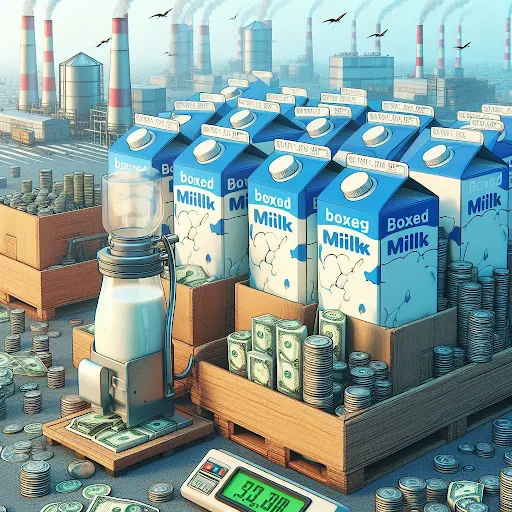The Commerce Ministry is anticipated to deliberate and authorize an escalation in the prices of boxed milk, provided that producers submit requests for adjustments in response to heightened raw milk production costs.
Chakra Yodmani, the deputy director-general of the Internal Trade Department, conveyed that subsequent to the recent approval by the Milk Board to elevate ex-factory median prices for raw cow's milk by 2.25 baht per kilogram to 22.75 baht per kg, with the intention of assisting dairy farmers, the ministry is prepared to endorse the impending price hike.
Mr. Chakra explained that the department will take up to 15 days to assess and approve the proposed price adjustments following the receipt of requests from entrepreneurs. The modifications in milk prices are expected to be diverse, contingent upon the proportion of raw milk employed in each product category, including UHT milk, pasteurized milk, and sterilized milk. Notably, plain milk, containing 100% raw milk, is projected to undergo the most significant price increase.
Forecasts indicate that this adjustment will impact the retail prices of dairy products by an average of 40-50 satang per box for a standard 225-milliliter package.
Regarding the costs associated with importing raw materials, influenced by recent attacks by Houthis on cargo ships in the Red Sea, Mr. Chakra noted that consultations with relevant authorities revealed an escalation in the expenses of importing raw materials. This is primarily attributed to elevated freight rates for chemical fertilizers and steel. However, he clarified that these increased costs have not yet translated into higher sales prices.
Global demand for steel is on the decline, particularly in China, a major consumer, facing a real estate crisis that has led to a slowdown in construction and steel production. In contrast, chemical fertilizers have not experienced an impact on domestic sales prices, as global prices have remained stable year-on-year, supported by consistently decreasing prices of natural gas, a key raw material in fertilizer production.
Most product prices in Thailand have remained stable, including rice paddy, with various types maintaining steady pricing. Additionally, tapioca prices have also demonstrated stability, averaging 3.65 baht per kg.

